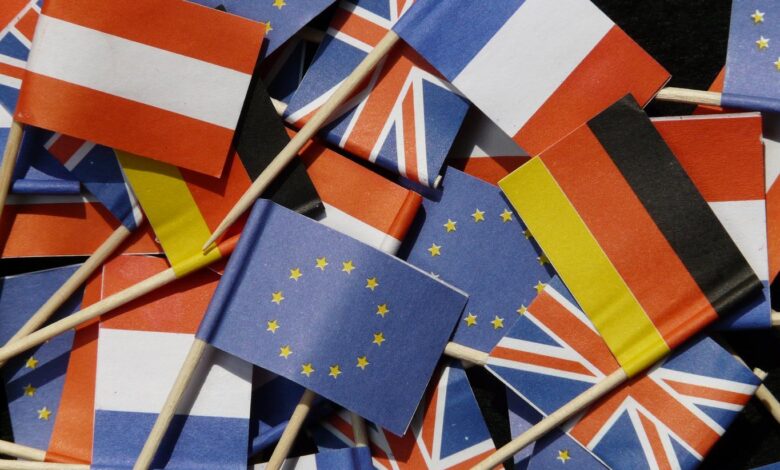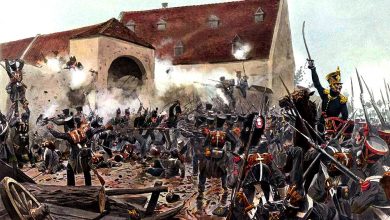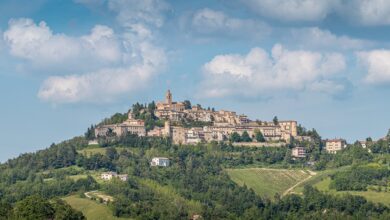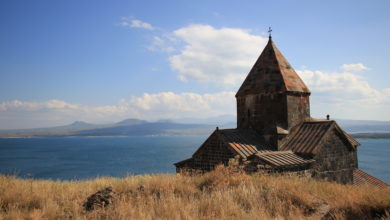
There was a time when one’s dialect, contacts, religion, and even passport hardly ever crossed the mountain range surrounding one’s village. This has gradually changed. Going from local identities to regional, fiefdom to kingdom, bourg to nation and finally supra-nations, citizens’ loyalties have evolved with the political landscape around them.
The Different Aspects of the European Project
At a time when the European project is demanding a renewed commitment from its citizens it is useful to examine the parameters of engagement to the nation and earlier forms of identity. From this, European citizens can take some useful aspects, but other parts they ought to discard if they are determined to fully pledge their allegiance to the Union.
The twelve starred flag on a field of blue, the ‘Ode to Joy’, and ‘Bella Ciao’ are perhaps the easiest parts of a ‘European’ identity. On the other hand, other aspects may prove a bit harder to assimilate: new languages, additional taxes, new political, geographical, and economic information. These come together with dilution of political agency caused by enlargement and federalism, with increased competition, and even new military and defense commitments. All of these are a few of the more noticeable demands placed on the would-be citizen of the European Union. Coming from a place rich in varying traditions, the ‘nation state’, these demands will be taken on with varying degrees of enthusiasm. Trying to understand the old allegiances can help prepare for the new.
The Myth Of The Nation
Of all the social myths one of the more difficult to reconcile logically is “nationalism”. Unlike justice, progress, popular democracy, or even heaven and the after-life, the ‘nation’ is supposedly a well defined, observable phenomenon of human societies. However, under-scrutiny this notion and its simplistic appeal fall apart to an unanticipated extent. This concept is perhaps as elusive as it is familiar.
What exactly is a “nation?” Is the nation a collection of borders that have changed numerous times, even in recent memory? A collection of peoples whose genetic mix is so great and diverse that they are hardly distinguishable from their neighbors and even related to such far flung ancestors as Central Asians, Turks, Semites, Africans, Neanderthals or Denizovs found the world over? Or perhaps it consists of a collection of languages but then how many to include? From this, it would seem that nationalism is one of the most vague notions we adhere to. However, it is still one of the most persistent and troublesome myths in modern times. People will build their identity around it. As a consequence, we also define states, organise passions, start wars, and justified mass killings because of it.

The Dawn of the Nation State
In the modern era the birth of the nation state links to the decline of the Holy Roman empire, from about 1200 CE onwards. We ought to remember that Empires are not nations, they are made up of numerous ethnicities. Empires would normally recognise citizens of all different origins in one way or another. Peoples maintained their original identities even while being and identifying themselves as an integral part of the empire. Nation states are different. They may accept minorities within their borders, but may also insist on their assimilation. The boundaries of an empire are fluid things, expanding and contracting over time, those of the nation state are perceived as fixed for eternity, though in reality they are not.
A nation is more similar, but not identical, to a kingdom. A kingdom starts as the birthright of an individual and it evolves into a jurisdiction. The loyalty of the kingdom’s subjects is to the natural right of the king derived from God, even though the king is not a god himself. By contrast the right of the nation to exist is enshrined in natural law, not in the authority of a single person.
Somewhat akin to race, an even more nebulous concept, though a solid fixture of 21st century vocabulary, the nation comforts, protects and gives us a sense of identity while it also exacts a psychological toll. It makes numerous demands of its adherents including ultimately death to protect its projection of power and its dominant class. However, a nation does not give it citizens unlimited access to its power and wealth in return. The share they get will depend on the socio-economic status. It can go from virtually nothing for the homeless to untold wealth and power for a fortunate few. Efforts to legitimise a ‘safety net’, a guaranteed income, constitutional or other birth rights and entitlements like universal education have come and gone in the nation state. They remain precarious.
War and Security, the Myth of a Nation’s Power
It wasn’t always that the nation was thought to be the guarantor of security for the community. In the feudal era, the feudal lord was responsible for the community’s defense. He ordered the construction of a defensive fortress where he resided and wherein the community took refuge in times of danger. The feudal lord organised the men who would accompany him to battle, assured the provision of their equipment when social custom didn’t require them to do so themselves, mapped out their strategy and led them into battle. They were also responsible for external relations of the community, making alliances where he saw fit breaking other alliances for the community’s protection or advancement.
When kings began to replace local feudal lords, the king’s armies, first in parallel with local forces and afterwards replacing them, became the principal guarantor of power. The identification of the king, though his domains would often be contiguous with what would later become the nation, was a process imbued with religion and faith as well as power and relationships.
From Kingdom to Nation
As God’s incarnation on earth the king’s existence imposed special loyalties and obligations on the subjects. Lese-majesteor, deposing a king was no longer a simple political matter but a direct affront to God and his power. But it was not directly an affront to the community or the nation.
During the middle ages and through to the modern period in Europe kings could and did come from other countries. The Monarchs of England are today from Germanic descent, Queen Elizabeth retaining only a minor lineal connection to the British kings of the past. The Austrian Hapsburg house ruled for long periods in France, Spain and the Netherlands as well as Austria-Hungary, they acquired those positions through marriage and conquest.
It wasn’t until later that the idea of nation, a legally bound territory with some consistency in ethnicity, customs, and laws started to become the principal repository of security. The predominance of the nation as a political organisation continues today. It has been eroded both from above and from below. From above by supra-national organisations, like the former Soviet Union and the European Union, and from below by strong regional independence movements such as in Scotland, Catalan region, or Northern Italy and Corsica.
The European Union An Empire or Supra-National State?
The current European Union presents itself halfway between some of the more ambitious alliances of the past and today’s somewhat tenuous notion of nation as a federation of regions.
In the past, however, national loyalties were constructed not inspired by treaties between different parties. France, the UK, Italy, and Germany were all built from regions who had little desire to join anything larger than themselves except on a limited basis in times of external threat. School curriculum, the clergy, the consecration of festivals, holidays, and symbols, all contributed to fostering national identity at a time when local loyalties were still stronger. Even Greek City states, so famously successful in attracting the loyalty of their citizens, were originally built on forced migrations from the surrounding countryside. In time, festivals, gods, and other attractions of the Polis would make their citizens feel Athenian, Spartan, Corinthian (or other) and then Greek. Similarly, European identity will need to be crafted as part of an ongoing, emergent process.

Moving Forward
Ultimately, the creation of the nation states and its allegiances was a gradual process that happened over time. With this in mind, the lack of initial wide-spread enthusiasm to the notion of Europe should not be insurmountable. However, we ought to be careful in relying on symbols, holidays, religious sermons, or even laws like universal conscription to build the sentiment of belonging to a European nation today. Times have changed too much, people are better informed, educated, and accustomed to individual freedoms. The key to success will be in choosing carefully sustainable values on which to build the Union. Many of these are already in place in the Declaration of the Rights of Man and Citizens and the European Charter. Respect for these values including the more divisive ones such as human rights, minority rights, immigrants’ rights, and territorial integrity, and the ultimate surrender of sovereignty will be key to the successful emergence of Europe. In contrast, allowing individual, regional, national, or religious interests to prevail will make the building of a successful union more difficult.
Stephen Sposato





